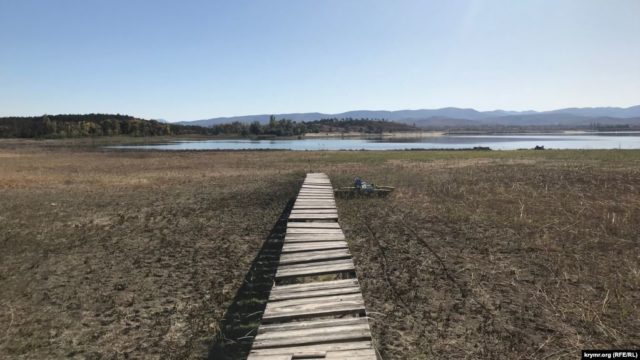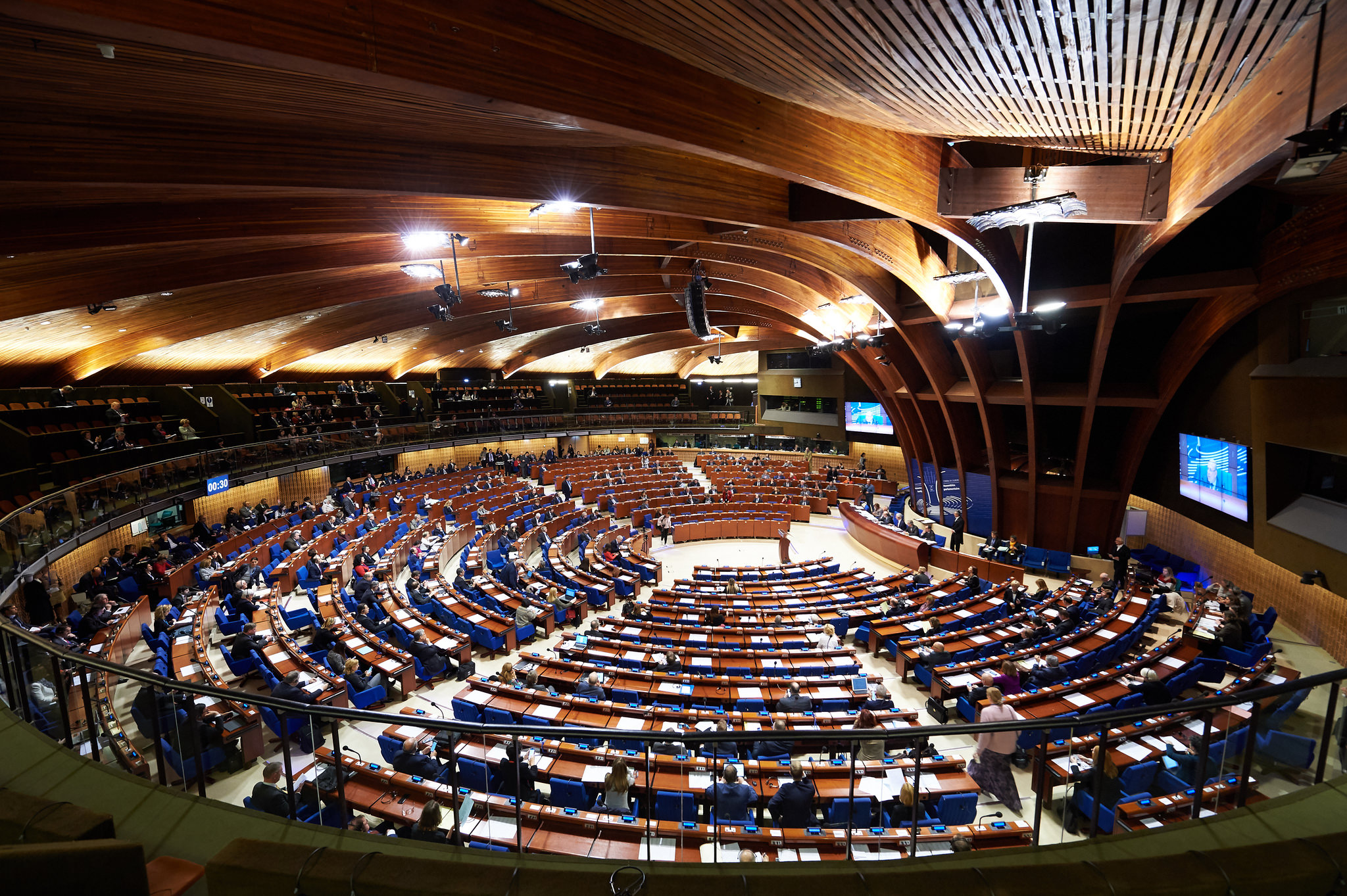Crimea’s water problem is not a novelty. Due to relatively low annual average precipitation levels and a poor river network, chronic freshwater shortages have been an acute predicament for centuries. The first attempt to resolve this problem came after the drought of 1833 when Finnish-born Russian botanist Christian Steven proposed building a canal from the Dnipro River to Crimea.
The idea only came to fruition nearly 130 years later. In 1961, Soviet authorities began construction of the North Crimean Canal, which, after a few years, started delivering some of the Dnipro’s water to the peninsula. Despite the fact that the canal did not solve Crimea’s water problem completely, it satisfied 85 percent of the peninsula’s needs when it came to drinking water, irrigation, and industrial use (Istpravda.com.ua, May 13, 2014).
Following Russia’s forcible annexation of Crimea in 2014, Ukraine blocked the canal, but Moscow promised to find a new fix; it never did. Six years on, the peninsula risks drying up completely. This past July, the water levels at Crimea’s main reservoirs, including Bilohirske and Taihan, dropped drastically. According to Reshad Memedov, an activist of the Free Crimea movement, these reservoirs could dry up entirely in the fall. At the same time, the Chornorichechne Reservoir in Sevastopol is rapidly shallowing, while the surface area of the city’s largest freshwater reservoir—Chorna River—has shrunk significantly. The usually deep-water Biyuk-Karasu River is now only a stream.
Meanwhile, the rivers Baha, Armanka, and Uzundzha and the small tributaries of the Chorna River have all completely dried up (Blackseanews.net, August 3). Due to high summer temperatures and a lack of precipitation, the salinity levels of water reserves on the peninsula have also spiked dramatically: Kyrleutske Lake, in northern Crimea, is now 14 times saltier than the Black Sea. In lakes with lower salt concentrations, observers have noticed intensive development of green multicellular algae (Vesti92.ru, July 8).
The water infrastructure in Crimea is steadily collapsing, and the soil degradation process in the northern part of the peninsula is already creating severe ecological issues (Agroday.com.ua
, March 15, 2018). Since 70 percent of North Crimean Canal water was used for agriculture, the Ukrainian blockade dramatically affected that sector (Openforest.org.ua, June 6, 2020).
Apart from that, the quality and quantity of Crimeans’ drinking water have worsened as well. According to Oleksandr Liev, the former Ukrainian minister of tourism and resorts of the Autonomous Republic of Crimea, as of 2020, the problem of insufficient water supplies has become critical. Notably, high levels of mineralization of artesian well water have made it undrinkable. More than 200 wells have already been sealed. Due to the drought, water in many Crimean settlements, including Simferopol, is supplied only several hours a day (Blackseanews.net, July 30).
The situation in rural areas is even more alarming. People have absolutely nothing to drink: the wells have dried up, and the central water supply system, promised by the [occupation] authorities, has not yet been built. The only ones not experiencing water scarcity in Crimea are, apparently, local officials, oligarchs, and the Russian military (Novaya Gazeta, July 19). Even though the peninsula’s internal resources can provide more than 500 million cubic meters of water annually, outdated infrastructure causes enormous problems. Fifty-six and a half percent of the 14,000 kilometers of Crimea’s waterways need repairing. In 2019, 47 percent of drinking water lost during its transportation, but only 1 percent of the water supply system was fixed that year (Openforest.org.ua, June 6).
On July 24, the self-proclaimed prime minister of occupied Crimea, Sergey Aksyonov, confirmed the desperate situation and did not rule out the possibility that the Russian government would classify the water scarcity threat in Crimea as an emergency situation (Allcrimea.net
, July 24). Due to the critical conditions in Simferopol, Aksyonov was forced to ask for help from the Russian military. Over 300 service members from the Southern and Western military districts laid more than 50 kilometers of temporary aboveground water pipelines. According to Aksyonov, these new pipes will transfer up to 50,000 cubic meters of water from Taihan to the reservoirs of Simferopol (Rossyiskaya Gazeta, July 13). But already on July 31, one of the quickly and haphazardly laid pipes ruptured (Blackseanews.net, July 31).
The Crimean [occupation] authorities are contemplating any and all ideas to deal with the drought: from artificial rain to building water pipelines from the Kuban. But the effectiveness of such plans is questionable. Many experts believe the situation in Crimea can only be resolved by regaining access to the Dnipro River (RBC, June 20). The Ukrainian government, however, is not ready to restart the flow of water to the peninsula. Oleksiy Danilov, the current secretary of the Ukrainian National Security and Defense Council, asserted that Ukraine has “no moral right” to resume supplies to Russia-occupied Crimea. Likewise, Foreign Minister Dmytro Kuleba stressed that Kyiv would not supply water even in exchange for Russia’s release of Ukrainian prisoners held on the peninsula (Crimea.ria.ru, July 10).
, June 29). But the former acting deputy head of the Ukrainian Presidential Administration, Andriy Senchenko, believes that the blocked North Crimean Canal is a significant strategic advantage and geopolitical instrument for Kyiv (Glavcom.ua, July 28). Ukraine will need to use this instrument wisely while, at the same time, hardening its vulnerable southern flank in preparation for any military actions or “hybrid” threats from Russia.
Further reading:
- Critical water shortage in Crimea may prompt new Russian attack against Ukraine
- Ukraine’s water blockade of Crimea should stay, because it’s working
- Russia can’t solve Crimea’s water problem
- Crimea’s growing water problem might provoke new Russian attack against Ukraine
- Occupied Crimea is running out of water
- Crimea’s water troubles
- Ukraine Stops Water Supply to Crimea (2014)





